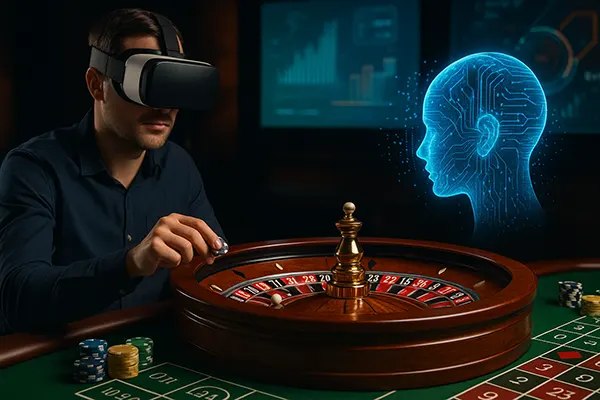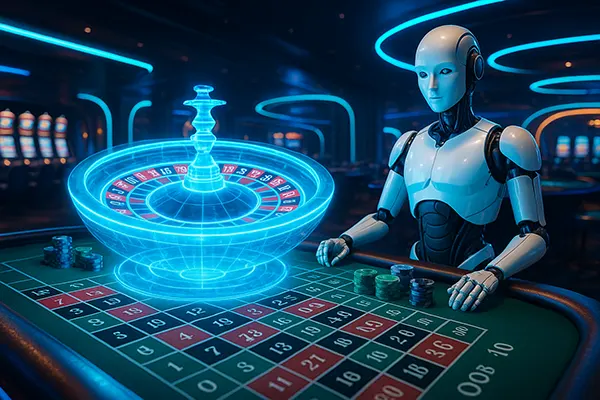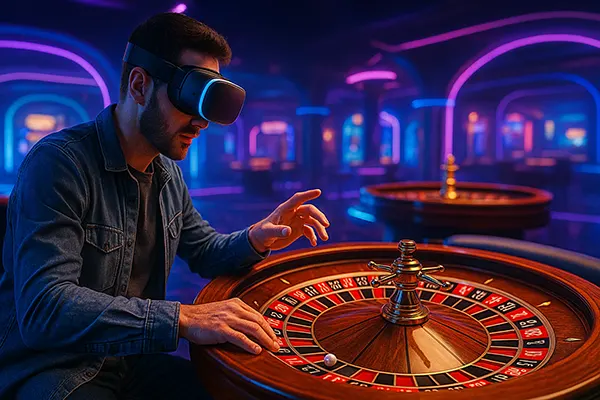
How Technology is Transforming Roulette: From VR to Artificial Intelligence
Roulette has long been one of the most iconic games in gambling history, and in 2025 it continues to evolve thanks to the rapid development of digital technologies. Innovations such as virtual reality, artificial intelligence, and advanced data systems are changing the way roulette is played, viewed, and enjoyed. These transformations not only enhance the gaming experience but also raise questions about fairness, personalisation, and the future of casino entertainment.
Virtual Reality and Immersive Environments
Virtual reality (VR) has shifted roulette from a traditional table into fully interactive three-dimensional worlds. Using headsets and motion tracking, players can sit at realistic tables, move chips with hand gestures, and communicate with dealers and other participants in real time. This development creates a sense of presence and social interaction that was previously limited to physical venues.
In 2025, VR roulette is no longer a niche product but a growing trend within major gambling operators. Improved graphics, reduced latency, and wider affordability of VR devices have brought the game closer to mainstream adoption. Many casinos now invest in virtual rooms that replicate authentic gaming halls, allowing players to choose between different themes and layouts.
Importantly, VR also serves as a testing ground for responsible gaming features. Developers integrate session time alerts, spending trackers, and self-exclusion tools directly into virtual environments, ensuring that immersion does not come at the cost of player safety.
The Future Potential of VR in Roulette
Looking ahead, VR could evolve to include biometric feedback, enabling tables that respond to player emotions or stress levels. While still experimental, this technology may allow for more customised experiences, where the game environment adjusts dynamically. For example, lighting and soundscapes might change according to a player’s focus, enhancing both comfort and engagement.
Collaboration between VR developers and casino operators is expected to expand further. Partnerships with technology companies ensure that roulette remains at the forefront of immersive entertainment. As devices become more portable and affordable, accessibility to VR roulette will increase dramatically.
However, with greater immersion comes a stronger need for regulation. Industry watchdogs are already discussing guidelines to protect players from excessive use and ensure that VR-based games uphold transparency and fairness.
Artificial Intelligence in Roulette Systems
Artificial intelligence (AI) has become an integral part of roulette design and management. In 2025, AI is widely used for detecting irregular betting patterns, enhancing fairness, and personalising the gaming journey. Algorithms analyse player data to suggest table preferences, recommend betting strategies, and provide real-time assistance without interfering with individual choices.
AI-driven roulette also improves fraud prevention. Advanced monitoring systems can instantly identify suspicious activity such as collusion, unfair betting, or attempts to exploit software vulnerabilities. This level of protection builds trust among players and strengthens the reputation of online casinos that adopt AI safeguards.
Moreover, AI supports responsible gambling by tracking behaviours that indicate potential risk. Alerts and proactive messages encourage players to set boundaries, making roulette not only more innovative but also more secure for participants worldwide.
How AI Shapes Player Experience
AI is increasingly used to customise roulette experiences. From tailoring promotional offers to adjusting table limits, operators now provide individualised services that reflect player preferences. This personalisation ensures a smoother, more relevant interaction between player and game.
Voice recognition and natural language processing also make roulette more interactive. AI-powered dealers can respond to questions, explain rules, or even hold conversations, blurring the line between automated systems and human hosts. This technology bridges the gap for players who enjoy social interaction but prefer online environments.
On the technical side, AI improves game balance and speed. Smart algorithms reduce downtime, optimise table management, and deliver seamless gameplay, ensuring that players spend more time enjoying roulette and less time waiting for results.

Data, Security, and Fairness
Technological progress in roulette is not limited to VR and AI. Data analytics, blockchain, and secure transaction systems have become crucial for guaranteeing transparency and fairness. Blockchain technology, for instance, is increasingly used to record outcomes, making it impossible to alter results and providing players with verifiable proof of fairness.
Security protocols have also advanced, with end-to-end encryption and multi-factor authentication protecting players from cyber risks. These developments ensure that roulette remains accessible while safeguarding personal and financial information. In an era where data privacy is essential, such measures are fundamental to maintaining trust.
Furthermore, responsible gaming frameworks are supported by real-time monitoring tools that provide insights into player habits. Regulators encourage operators to use these tools not only to comply with legal requirements but also to promote ethical gaming practices. The focus on transparency ensures that roulette maintains its status as both entertaining and reliable.
The Road Ahead for Secure Roulette
By 2025, collaboration between regulators, developers, and casinos has created an environment where security is central to roulette innovation. Transparent algorithms, independent audits, and third-party testing are now industry standards that reinforce confidence in the game.
As payment systems evolve, digital wallets and cryptocurrencies are being integrated into roulette platforms. This provides players with more flexibility while ensuring compliance with global financial regulations. Such solutions highlight how technology continues to modernise every aspect of roulette.
Ultimately, the combination of immersive VR experiences, AI-powered intelligence, and robust data security reflects a new era for roulette. These advancements guarantee not only entertainment but also safety, fairness, and trust, ensuring that roulette remains relevant in the digital future.






